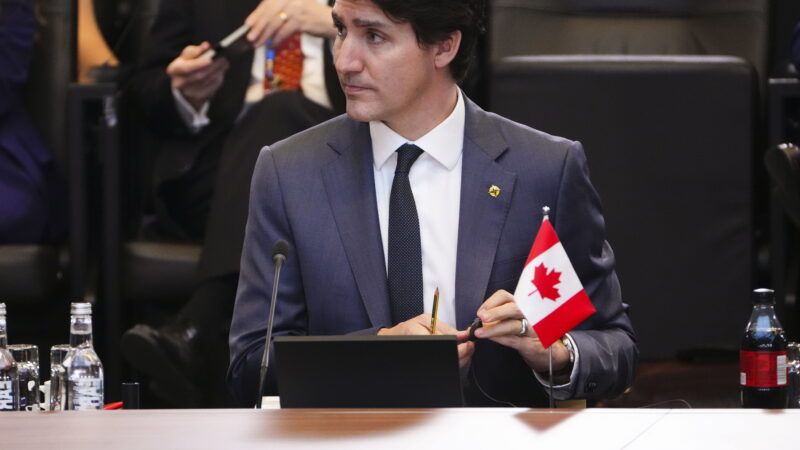Justin Trudeau's Plan To Ban Foreigners From Buying Canadian Homes Won't Make Housing Affordable
Foreign buyers are a small percentage of new home purchases. Excluding them from the housing market does little to reduce housing costs.

The Liberal government of Canadian Prime Minister Justin Trudeau is proposing a ban on foreigners purchasing homes in the country in an effort to combat high housing prices. If the small number of existing foreign homebuyers and other countries' experience are anything to go on, it won't do much good.
"We will prevent foreign buyers from parking their money in Canada by buying up homes. We will make sure that houses are being used as homes, rather than as commodities to be traded," said Chrystia Freeland, Canada's finance minister, in a forward to the government's proposed 2022 budget.
The plan would ban foreign commercial enterprises and people who are neither Canadian citizens nor permanent residents from purchasing "nonrecreational, residential property" for a period of two years.
Running foreign buyers out of the housing market might strike some as xenophobic. But even in welcoming Canada, it's a political winner.
During last year's elections, both Trudeau and Erin O'Toole, leader of the rival Conservative Party, proposed a ban on foreign buyers, reports Bloomberg. The left-wing New Democratic Party proposed a 20 percent tax on homes bought by non-Canadians.
There's a certain logic to a ban on foreign home purchases. Reducing demand should, in the short run, reduces prices. Those benefits would all go to the remaining Canadian homebuyers.
The problem is that foreign buyers are a small percentage of overall buyers in the housing market. Excluding them does little to dampen demand. Soon enough, it's overwhelmed by rising demand from native Canadians.
The record of policies aimed at reducing foreign buyers in housing markets shows fleeting effects on affordability.
Starting in 2016, the British Columbia provincial government levied an additional 15 percent property transfer tax on homes bought by foreigners in the Vancouver Metro area. In 2018, that tax was raised to 20 percent and expanded to other areas of the province. Provincial property transfer data does show a pretty steep decline in foreign-involved purchases after the implementation of the tax, from about 10 percent of all property transfers to between 1 and 2 percent.
The effect on housing affordability was minimal, however. One study on the tax found that it reduced house price growth by 1 percent, with that benefit fading away after just 7 months. Foreign home purchases continue to be about 1 percent of total home purchases in British Columbia. And it's still the most expensive province in the country to buy a home.
In 2018, New Zealand also largely banned foreign nationals from purchasing homes—estimated to be about 3 to 4 percent of home sales. Since, home prices increased by 12 percent in 2019, 18 percent in 2020, and 23 percent this past year.
Getting rid of restrictions on supply would do much more to reduce housing costs than marginally reducing demand in the short run.
Canada has many of the same price-increasing restrictions on new housing that U.S. cities and states do. Its local and provincial governments restrict new dense housing within the urban core and suburban development on city fringes. Several cities have rent control, which discourages investment even more.
"Rather than chasing villains, we should seek solutions," writes Steve Lafleur of the Fraser Institute, a free market Canadian think tank. "If policymakers want to increase housing affordability for young people, families, and newcomers, they should reduce barriers to housing construction."
Not only would reducing home construction barriers improve affordability, but it would probably make scapegoating foreigners for Canada's domestically sourced high housing costs less politically profitable.
Rent Free is a weekly newsletter from Christian Britschgi on urbanism and the fight for less regulation, more housing, more property rights, and more freedom in America's cities.


Show Comments (42)